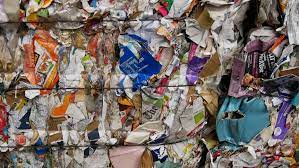Polypropylene (PP) is one of the most widely used plastics in the world that is found in everything from food containers and automotive parts to medical devices. As environmental issues increase, the recycling of PP is becoming more important. This article will provide a thorough overview of the information you should be aware of concerning PP recycling.
What is Polypropylene?
Polypropylene is a thermoplastic polymer known for its toughness, flexibility, and resistance to chemicals and heat. It’s commonly used due to its cost-effectiveness and versatility. It’s found PP in items like straws, yogurt containers, and even some types of clothing.
Why Recycle PP?
PP Recycling is crucial for several reasons. First, it reduces the volume of waste that ends up in landfills. Plastics can take years to decay. In addition recycling PP conserves natural resources by reducing the demand for a new source of raw materials. Third, it helps lower the emissions of greenhouse gases that result from the production from new materials.
How is PP Recycled?
The recycling process for PP typically involves a number of key steps:
Collection and Sorting: PP waste is collected from various sources, including homes, businesses and recycling centres. Then, it is separated into different plastic types and other contaminants.
Cleaning and shredding: The sorted PP will be cleaned in order to remove any impurities, such as food residues and labels. After being cleaned, the plastic is shredded into small flakes or pellets.
Reprocessing Processing: The PP pellets are then melted and processed to create new products. This can involve extrusion to form new PP pellets or injection molding to produce specific items.
Quality Control Quality Control PP is subjected to quality inspections to ensure that it is compliant with the standards of the industry. This step is crucial to ensure the quality and integrity in the recycled product.
Challenges in PP Recycling
Despite its advantages, PP recycling faces several challenges. A major issue is the absence of a widespread recycling infrastructure, which can make it challenging to collect and process PP effectively. Furthermore, PP can be contaminated with other materials, which makes the process of recycling more difficult. Quality of the recycled PP can also vary in the quality of new products.
The Future of PP Recycling
The next phase of PP recycling looks promising with the advancement of technology. Innovative sorting and processing technologies are making it easier to recycle PP more efficiently. In addition, there is a growing emphasis on developing closed loop recycling systems in which recycled PP can be utilized to make new products with similar qualities.
In conclusion, while PP recycling is not without its issues, it is an essential component for sustainable garbage management. As recycling technology and recycling practices improve the efficiency and efficiency of PP recycling is expected to improve, resulting in a more sustainable future.


